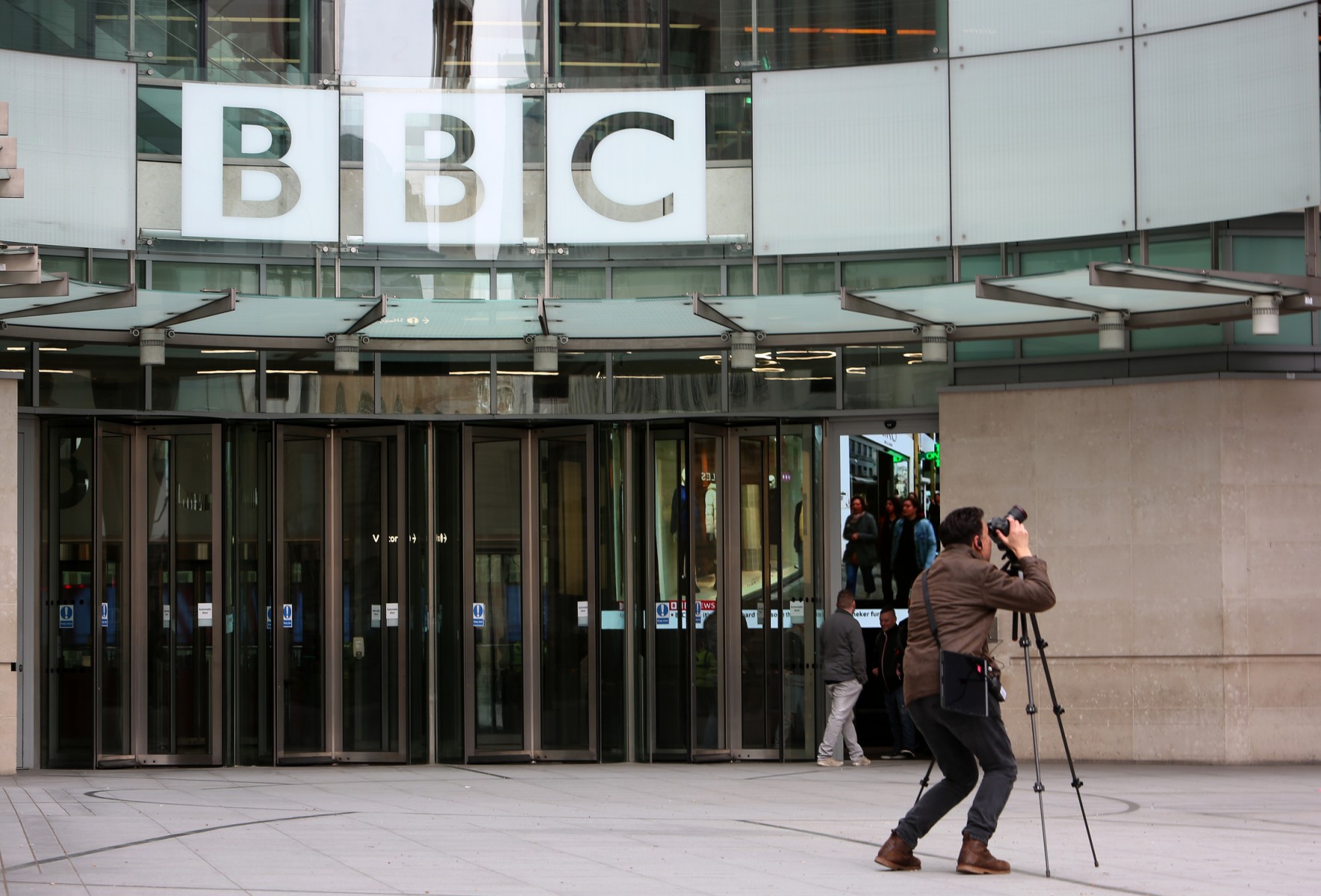
The 62-year-old compared the language used to launch the new policy to that of Nazi-era Germany on Twitter, which the BBC said on Friday was a “breach of our guidelines.”
“The BBC has decided that he will step back from presenting Match of the Day until we’ve got an agreed and clear position on his use of social media,” the broadcaster said in a statement.
Lineker is a freelance broadcaster for the BBC, not a permanent member of staff, and is not responsible for news or political content so does not need to adhere to the same strict rules on impartiality.
Pundits and former England strikers Ian Wright and Alan Shearer immediately tweeted that they would not take part either, followed by the programme’s commentators.
Wright then said on his podcast on Saturday that he would quit the BBC if Lineker was sacked for good.
The BBC announced that the highlights show, a Saturday night fixture since 1964 and the longest-running football television programme in the world, would air without pundits or a presenter for the first time.
It also said players would not be asked for interviews after some indicated they would not be available in support of Lineker.
Adding to the chaos, presenters and pundits then pulled out of a slew of BBC radio and television shows, forcing their cancellation and the airing of repeats and podcasts instead of usual live coverage of the packed Saturday sport schedule.
“We are sorry for these changes which we recognise will be disappointing for BBC sport fans,” said the broadcaster.
“We are working hard to resolve the situation and hope to do so soon.”
Lineker himself did not speak to reporters, but was spotted at his hometown club Leicester City for their Premier League game against Chelsea.
– ‘Immeasurably cruel’ –
The row was sparked by Lineker’s response to a video in which Home Secretary Suella Braverman unveiled plans to stop migrants crossing the Channel on small boats.
Lineker, the BBC’s highest-paid star, wrote on Twitter, “This is just an immeasurably cruel policy directed at the most vulnerable people in language that is not dissimilar to that used by Germany in the ’30s.”
The Conservative government intends to outlaw asylum claims by all illegal arrivals and transfer them other countries, such as Rwanda, in a bid to stop the crossings, which totalled more than 45,000 last year.
A YouGov poll published on Monday showed 50 percent backing the measures, with 36 percent opposed.
But rights groups and the United Nations said the legislation would make Britain an international outlaw under European and UN conventions on asylum.
Some 36 Tory lawmakers have sent a letter to the BBC warning that the affair will “no doubt shake many people’s already fragile confidence” in the corporation’s impartiality.
The BBC’s move sparked a wave of criticism from politicians and public figures, many of whom accused it of buckling to demands from Conservative lawmakers.
Opposition Labour leader Keir Starmer said the BBC “got this one badly wrong and now they’re very, very exposed”, while a petition calling for Lineker to be reinstated has attracted almost 160,000 signatures.
– Social media warning –
Former BBC director general Greg Dyke said the broadcaster had made a mistake.
“The real problem today is that the BBC has undermined its own credibility by doing this,” he told the broadcaster, adding it could create the impression that the “BBC has bowed to government pressure.”
The issue has brought to a head years of debate over BBC impartiality, which intensified after Britain voted to leave the European Union in 2016.
Brexit supporters claimed that the corporation coverage was biased against them, while the left claimed that it allowed presenters to make disparaging remarks against former Labour leader Jeremy Corby.
The Lineker row comes at a particularly heated period after allegations that BBC chairman Richard Sharp facilitated a loan guarantee for former prime minister Boris Johnson while applying for the job.
AFP




